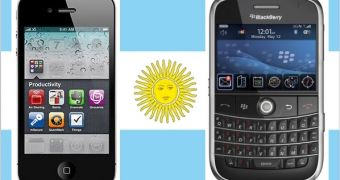Argentina has undergone rough changes during the last few years, as the country’s economy collapsed in December 2001 due to 1999’s recession that caused high interest rates and capital flight. The Argentinian government took several decisions meant to make its currency more competitive and the first to be affected were the car producers.
Starting March 2011, a series of “verbal” measures were adopted with the sole purpose of balancing imports and exports in certain sectors of the Argentinian economy.
In this regard, all importers in designated sectors were required to export an amount of local production equal to the value they import.
Although the policy was only applied to car producers at first, it appears that it was extended to the pharmaceutical industry, and more recently similar restrictions were also applied to washing machines, cookers, refrigerators and toys.
To make things even more “interesting” the Argentinian government imposed handset manufactures that sell their products in the country to manufacture those devices in Argentina.
While Samsung, Motorola, Nokia and LG already built their factories in Argentina in order to be able to continue to sell their handsets in the country, Research In Motion and Apple didn’t seem to be interested in complying with the Argentinian government’s new economic policies.
Today, the Argentinian government announced that it had blocked the sales of certain electronics to reduce the inflation level and improve its currency parity with the US dollar.
Unfortunately, RIM and Apple smartphones are among the devices temporary banned in Argentina. Although the Argentinian government’s measures have been taken due to economic reasons, it seems a bit too radical to completely ban the sales of some of the most popular devices available on the market.
It looks like the only option for RIM and Apple is to build their own plants in Argentina, if they want the ban to be lifted within the next few weeks. In this regard, it appears that RIM is already interested in building its factory in the country as fast as possible, as the company has been reportedly searching for a partner.
On the other hand, Apple did not make the same move and will probably silently leave the Argentinian market on the back door. That’s sad news for all Apple fans living in the South American country.

 14 DAY TRIAL //
14 DAY TRIAL //